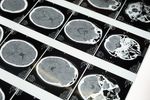If you’re not familiar with choline, well, you’re not alone. In fact, choline wasn’t even recognized by American health authorities as “essential” until 1998, so it is, in its way, a relative newcomer. And, while our bodies do produce some small amounts of choline, we need to be mindful to consume a sufficient amount of this essential nutrient in our diets or else we’ll be in trouble. It turns out that choline plays a key role in many of the, yes, essential things that the human brain and body need to do, from thinking clearly to smoothly pumping blood to burning fat for energy. What’s more, a study this year from Arizona State brain researchers found that low choline levels were associated with high levels of neural plaques and tangles, those key physical changes that typically accompany Alzheimer’s disease. It’s one more piece of evidence – and an important reminder – not to take choline for granted.
So, how to pay more attention to this very ‘essential’ stuff? Here’s the skinny on what you need to know about choline, where to get it and sensible ways to get your dose:
Choline by the numbers.
In the late ‘90s, the Institute of Medicine came up with the first U.S. choline dietary guidelines. They recommended 425 mg. a day for women, 550 mg. for men. But like most such guidelines, it’s the minimum amount you’d need to fend off actual disease, in this case caused by fats accumulating in the liver. Though our bodies need fats, we also need choline to help the body extract stored fat in the liver and metabolize it as fuel. But plenty of more recent medical research suggests that those daily amounts are hardly the optimal amounts we need to keep us in the high-functioning pink of health. And only an estimated 90% of Americans even consume choline at the minimum recommended levels, so small wonder loads of people are likely falling short. What does a shortfall look like?
This is your brain on choline.
Though it’s technically a derivative of the amino acid serine and sometimes called vitamin B4 though it’s not strictly a vitamin, you could call choline the Swiss Army knife of amino acids – it comes packed with a lot of functions. For instance, the body uses it to make a neurochemical, acetylcholine, that’s necessary for a range of brain jobs. For starters, it helps spark the nerve connections that allow muscles to contract. (One symptom of severe choline deficiency: muscle twitching.) Because acetylcholine plays an important role in cognitive function, some people consider choline a “nootropic,” a natural compound that enhances cognitive performance.
In one study, older adults who had poor memory function performed better on short and long-term verbal memory tests after taking 1,000 mg. of choline for three months. Very low levels can produce the opposite effect — brain fog and confusion, even erratic emotional swings. In one study of older adults, people with lower choline levels generally performed worse on cognitive tests than those with higher levels.
The rest of your body likes its choline too.
In short, choline covers the healthy function waterfront, supporting not only your brain health but also your nervous system, proper function of your liver and muscles, and the conversion of fat into energy, but also cellular development and repair. It’s also thought to be helpful to help with taming high blood pressure and mood swings; supporting better memory and athletic performance, and possibly helping to protect the liver from alcohol damage.
The homocysteine connection.
Choline also tamps down the production of another amino acid, homocysteine, which, in high levels, we know to be toxic to the brain. That may explain the Arizona State finding that lower levels of choline were associated with Alzheimer’s-like changes in the brains of the animals being studied. High homocysteine levels can do double damage, not only in the brain but also in the cardiovascular system, promoting the inflammation that increases the risk of heart attack and stroke. The research suggests that more choline in the diet likely reduces the risk of heart disease.
Make yours a choline-conscious diet.
The good news is that most of us don’t have to take a blood test to get a pretty good idea of where we fall on the choline spectrum. Common sense will do. High protein foods, especially animal products, contain high amounts of choline and if you’re eating at least three or four servings of these foods a week, you should be fine: egg yolks, liver, dairy products and meat (preferably grass-fed), and wild-caught fish will nicely fit the bill. If you’re not into animal products, then some plant sources contain respectable amounts to cover your needs as well, so lean into Brussels sprouts, soy (make it non-GMO, fermented please), Brassica veggies like broccoli, and cauliflower, as well as quinoa.
Supplements for some — but not necessarily all.
Severe choline deficiencies are rare but certain groups are more likely to fall into the choline-challenged camp and need to be more conscious about getting enough of the essential nutrient in their food. That includes people on very low calorie diets, and/or post-menopausal women whose reduced estrogen levels make it tougher for the body to break down the nutrients they consume into choline they need. Vegans who can also inadvertently fall short would also be wise to load up on the better plant sources to get theirs.
If you fall into any of these camps, you might also consider consulting with an integrative health care practitioner to determine an appropriate supplement. When looking at choline supplementation, keep in mind that many B vitamin supplements may already contain choline so read the label closely to mind your dose – as choline is very B-like, involved in so many physiological processes, including energy production, avoid overdoing it. A little goes a long way, and too much may trigger GI distress.
As most of my readers know, I’m hardly a fan of processed foods (to put it mildly), but many do contain the emulsifier lecithin which the body turns into choline – but eating crap is no way to get your dose. A better, far healthier way to go is with the supplement phosphatidylcholine (PC) which the body uses to make the fatty membranes that protects brain cells and allows them to communicate with each other.
Those who are pregnant also have special choline needs, so prenatal vitamins may be prescribed to fill in the gaps. Some (but not all) prenatal vitamins will contain choline, so be sure to check for it. Choline is important because it can help protect the brain development of the fetus and lower the risk of neural tube defects as well as other non-brain-related birth defects – but expectant people should work with their healthcare provider to tailor their prenatal vitamins to their particular needs.
Who should avoid supplementing their choline intake? Though there aren’t any known food or drug interactions with choline, in general, those with certain mental health conditions such as depression and bipolar disorder would be wise to steer clear of supplementation.
Too much of a good thing.
It’s almost impossible to get too much choline from dietary sources. You can, however, overdo it on the supplements if you (vegans especially) choose to go that route. If you’re taking too much choline on the daily, you may notice a fishy body odor and excessive sweating. If that’s the case you’ve definitely gone too far – and you need to dial it way back!




